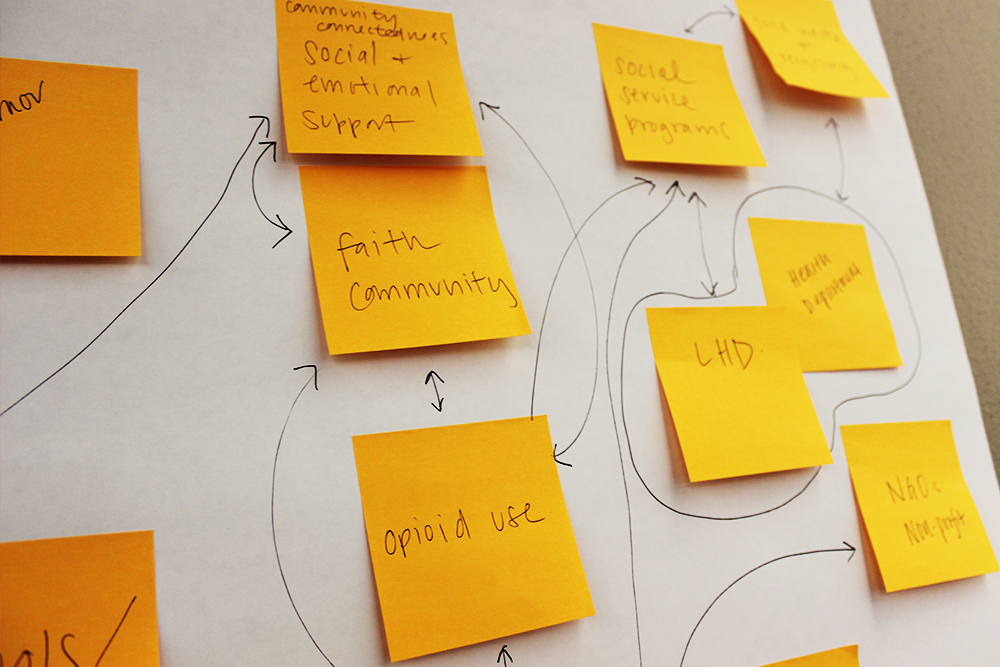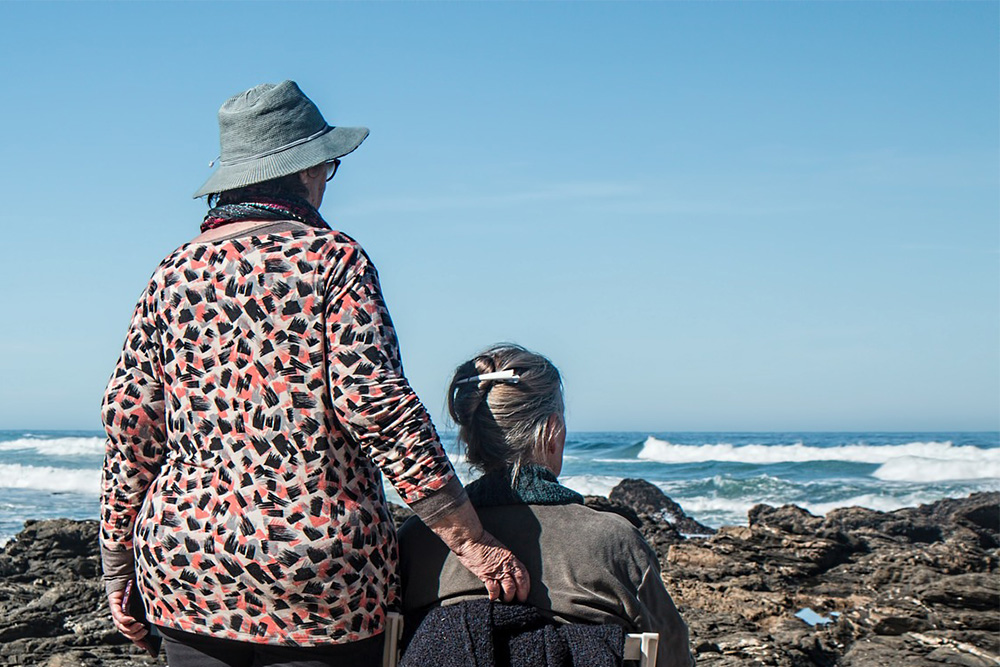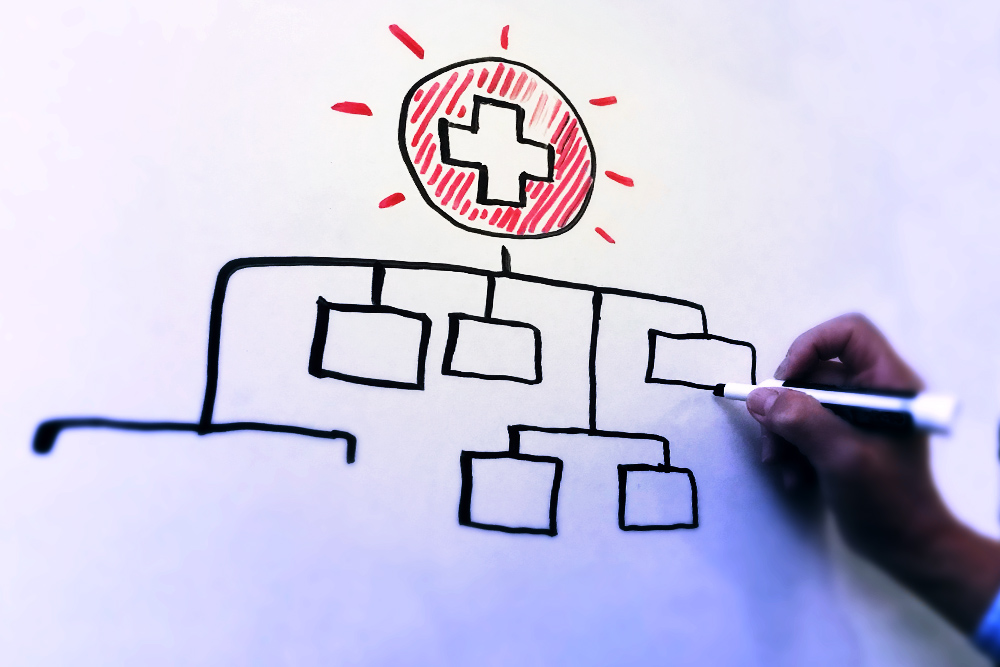March 26, 2019. This one-hour webinar, which is part of the Hot Topics series, reviews how a large health department in Oregon reduced their clinical services to focus more on primary prevention.
Learning Objectives
- Identify planning tools and strategies for considering a change from direct clinical care to population-based services.
- Describe communication strategies for informing internal and external audiences about large organizational changes and collecting input from them about the transitions.
- Identify evaluation measures to assess population health outcomes and organizational processes when changing the delivery of key public health services.

February 26, 2019. This one-hour webinar, which is part of the Hot Topics series, explores how public health professionals can take a lead in preventing opioid misuse. View part one of this two-part series on systems thinking and public health.
Learning Objectives
- Explore how to apply systems thinking methods to analyze the opioid crisis.
- Describe public health’s role in addressing substance misuse and addiction at the community versus the client or clinical level.
- Review how to apply a comprehensive, cross-sector approach to the opioid crisis at the local and state levels.

January 29, 2019. In this one-hour webinar, which is part of the Hot Topics series, Mary Kay Chess explores how systems thinking can be used to understand and resolve difficult public health problems.
Learning Objectives
- Engage in systems thinking to identify key stakeholders for public health problems.
- Consider and articulate interdependencies and interconnections in complex systems.
- Explore how to identify adaptive, upstream interventions within complex systems.

December 20, 2018. In this one-hour webinar, which is part of the Hot Topics series, David Farrer, MS, PhD, reviews how his colleagues addressed community concerns after high levels of arsenic and cadmium were detected in a Portland neighborhood.
Learning Objectives
- Understand the relationship between environmental public health agencies and the work of state and local environmental quality agencies.
- Recognize good sources of and common caveats associated with environmental sampling data for evaluating human health risks.
- Identify credible sources of evidence-based information on the health effects of environmental chemical contaminants.
- Identify key strategies for communicating about an unseen environmental health concern.

November 27, 2018. In this one-hour webinar, which is part of the Hot Topics series, Judith LaPan, MS, MBA, discusses how her rural Montana health department adopted an emergency response framework to better support emotional health in their community.
Learning Objectives
- Understand the importance of a community-based approach to improving emotional wellness and addressing mental health in areas with limited resources.
- Understand the process and tools used to create a community-driven plan to improve emotional wellness.
- Identify solutions being implemented to improve emotional wellness and community resiliency.

October 24, 2018. In this one-hour webinar, which is part of the Hot Topics series, communications professor Devon Greyson explores ways to help public health professionals and clinical providers speak about vaccinations.
Learning Objectives
- Describe the importance of understanding individual and community factors that influence vaccine hesitancy.
- Identify context-appropriate interventions to build trust and confidence among parents and community partners.

September 25, 2018. In this one-hour webinar, which is part of the Hot Topics series, Sarah Coefield, MS, discusses how the Missoula City-County Health Department supported public health during prolonged smoke events of the 2017 summer wildfire season.
Learning Objectives
- Understand the threats wildfire smoke poses to individuals and public health systems.
- Identify clean air intervention strategies for communities prone to wildfires and smoke events.
- Identify potential community and funding partners to address health threats associated with wildfires.

August 28, 2018. In this one-hour webinar, which is part of the Hot Topics series, Kirsten Aird, MPH, shares the public health approach to engaging older populations and community partners in addressing health issues.
Learning Objectives
- Review demographic and health trends underpinning the need for public health agencies to engage more with older populations.
- Review the Trust for America’s Health’s Public Health Framework to Support the Improvement of Health and Wellbeing of Older Adults.
- Identify strategic objectives for a public health organization that would benefit from new partners in aging services.
- Align Public Health 3.0 (or Public Health Modernization) priorities with health across the lifespan initiatives.

July 24, 2018. In this one-hour webinar, which is part of the Hot Topics series, Public Health Director Dawn Emerick, EdD, shares how her division embraced the Chief Health Strategist role to better work with new partners and demonstrate their agency’s value to the community.
Learning Objectives
- Identify three necessary change management tactics for organizational restructuring.
- List two examples of successful activities for implementing a strategic plan.
- List at least two lessons or recommendations for integrating change management principles and making change stick.

June 27, 2018. In this one-hour webinar, which is part of the Hot Topics series, Maria Levis, CEO of Impactivo, reviews how her team deployed creative communication strategies to address public health issues in the wake of Hurricane Maria.
Learning Objectives
- List three major public health challenges in Puerto Rico after Hurricane Maria.
- Identify two communication strategies for messaging to hard-to-reach communities in a hurricane disaster response.
- Consider ways to build durable communication systems that can withstand severe power outages.

May 29, 2018. In this one-hour webinar, which is part of the Hot Topics series, Alexis Bates reviews why maternal deaths in the United States have risen since the 1980s, and what is being done both locally and nationally to address the issue.
Learning Objectives
- Understand the impetus behind Washington State’s recent maternal mortality law and how the Washington State Department of Health is involved in the review process.
- Describe maternal deaths in Washington State between 2014–2015.
- List two recommendations made by the maternal mortality review panel to improve women’s health care services in the state.

April 25, 2018. In this one-hour webinar, which is part of the Hot Topics series, planner and architect Erin Christensen Ishizaki explains how her work uses public health research and design as interventions to reduce chronic disease.
Learning Objectives
- List two motivating factors for real estate and planning decision-makers to intentionally consider health.
- List three ways planners and designers can use public health research methods in their work beyond a health impact assessment.
- Consider three cross-sector strategies for public health practitioners and urban planners to collectively leverage their work and influence decisions.

March 27, 2018. In this one-hour webinar, which is part of the Hot Topics series, Karolyn Holden, Director, Grays Harbor County Public Health and Social Services, shares how her rural public health agency took deliberate steps toward building a more trauma-informed practice.
Learning Objectives
- List two resources or tools that could help guide an organization in becoming more trauma-informed.
- Describe two ways Grays Harbor County Public Health and Social Services changed their workplace culture to be more trauma-informed.
- List two policy or environmental changes Grays Harbor County Public Health and Social Services put in place to be more trauma-informed.

February 20, 2018. In this one-hour webinar, which is part of the Hot Topics series, Jennifer Baker, Adolescent Health Project Coordinator for the Alaska Department of Health and Social Services, shares tested strategies for getting and keeping youth engaged in prevention efforts.
Learning Objectives
- List two ways the Alaska Adolescent Health Project encourages youth to participate in health promotion campaigns.
- Describe how local and national data can be used in support of positive youth development and inclusion in community health projects.
- Identify two resources for assessing organizational readiness to better include youth in prevention efforts.

January 30, 2018. In this one-hour webinar, which is part of the Hot Topics series, Luci Longoria, MPH, shares how Oregon public health advocates helped raise the tobacco purchasing age from 18 to 21.
Learning Objectives
- Review the public health significance of raising the minimum legal sales age of tobacco products and inhalant delivery systems to 21 years old
- Understand how policy changes support a larger tobacco control strategy
- Describe two ways public health advocates can navigate tobacco control policies in their communities using lessons from Oregon's approach
